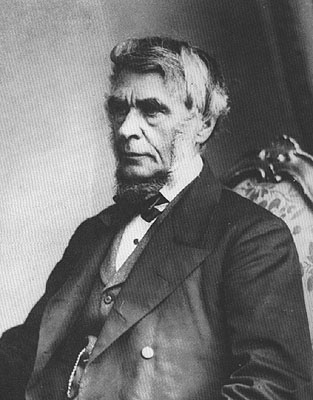
Council of Heads of Australasian Herbaria
Australian National Herbarium
Biographical Notes
 |
Council of Heads of Australasian Herbaria |
 Bentham,
George (1800 - 1884)
Bentham,
George (1800 - 1884)Born Sept. 22, 1800, Stoke, Devon, England. Died Sept. 10, 1884, London.
British botanist whose classification of seed plants (Spermatophyta), based on an exhaustive study of all known species, served as a foundation for modern systems of vascular plant taxonomy.
Impressed by the French naturalist Pyrame de Candolle's analytic tables of French flora, Bentham began to study botany while managing his father's estate near Montpellier, France. He served as secretary (1826-32) to his uncle, the British philosopher and jurist Jeremy Bentham. In 1833, upon his inheritance of wealth following the deaths of his father and uncle, Bentham turned his full attention to botany.
After he donated his herbarium of more than 100,000 specimens to the Royal Botanical Gardens at Kew, Surrey, in 1854, the director of the Gardens, Sir William Hooker, invited him to establish permanent quarters there.
At Kew, Bentham participated in the Gardens' definitive survey of floras of the British colonies and possessions, for which he prepared the 'Flora Hongkongensis' (1861) and the 'Flora Australiensis' (7 vol., 1863-78), cataloging and describing more than 7,000 species.
Realizing the inadequacy of current criteria for assigning species to their appropriate genera, he undertook the ambitious task of compiling an unambiguous descriptive classification of all seed plants. Collaborating with Hooker's son Sir Joseph, Bentham spent 27 years in research and examination of specimens for the work 'Genera Plantarum' (3 vol., 1862-83). It was published in Latin and covered 200 "orders" (analogous to what are now known as families) of 7,569 genera, which included more than 97,200 species.